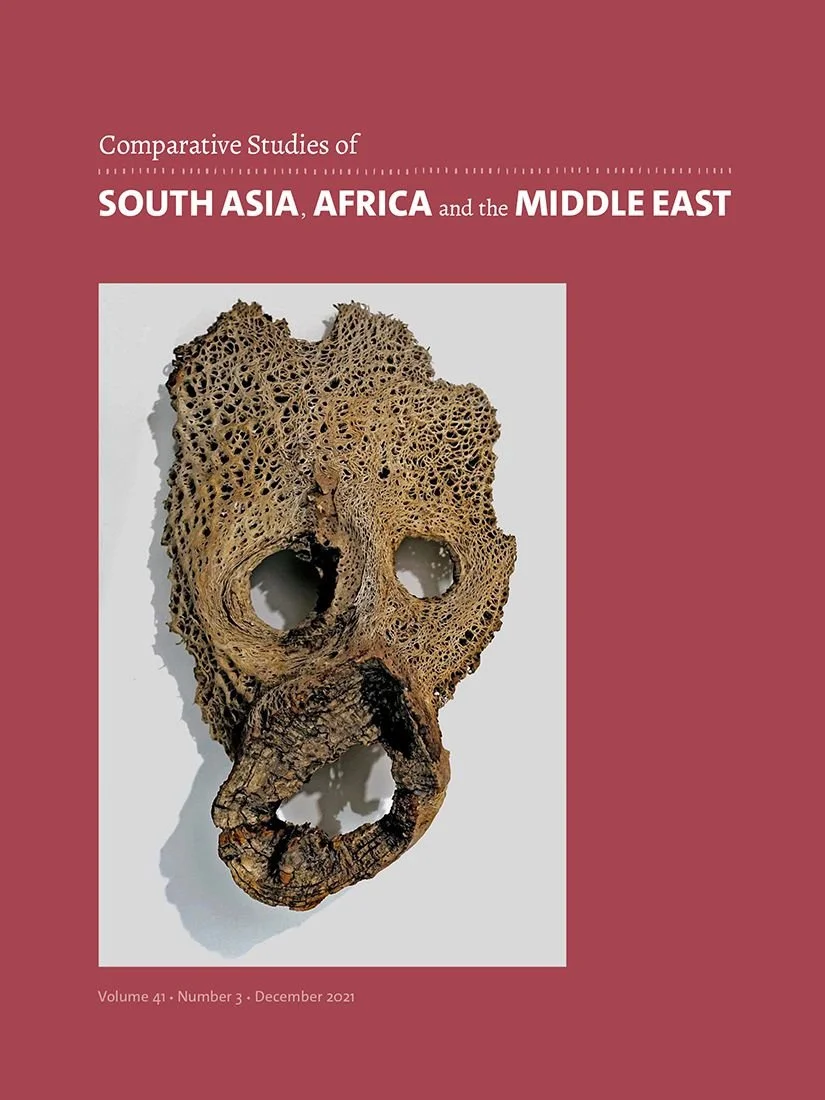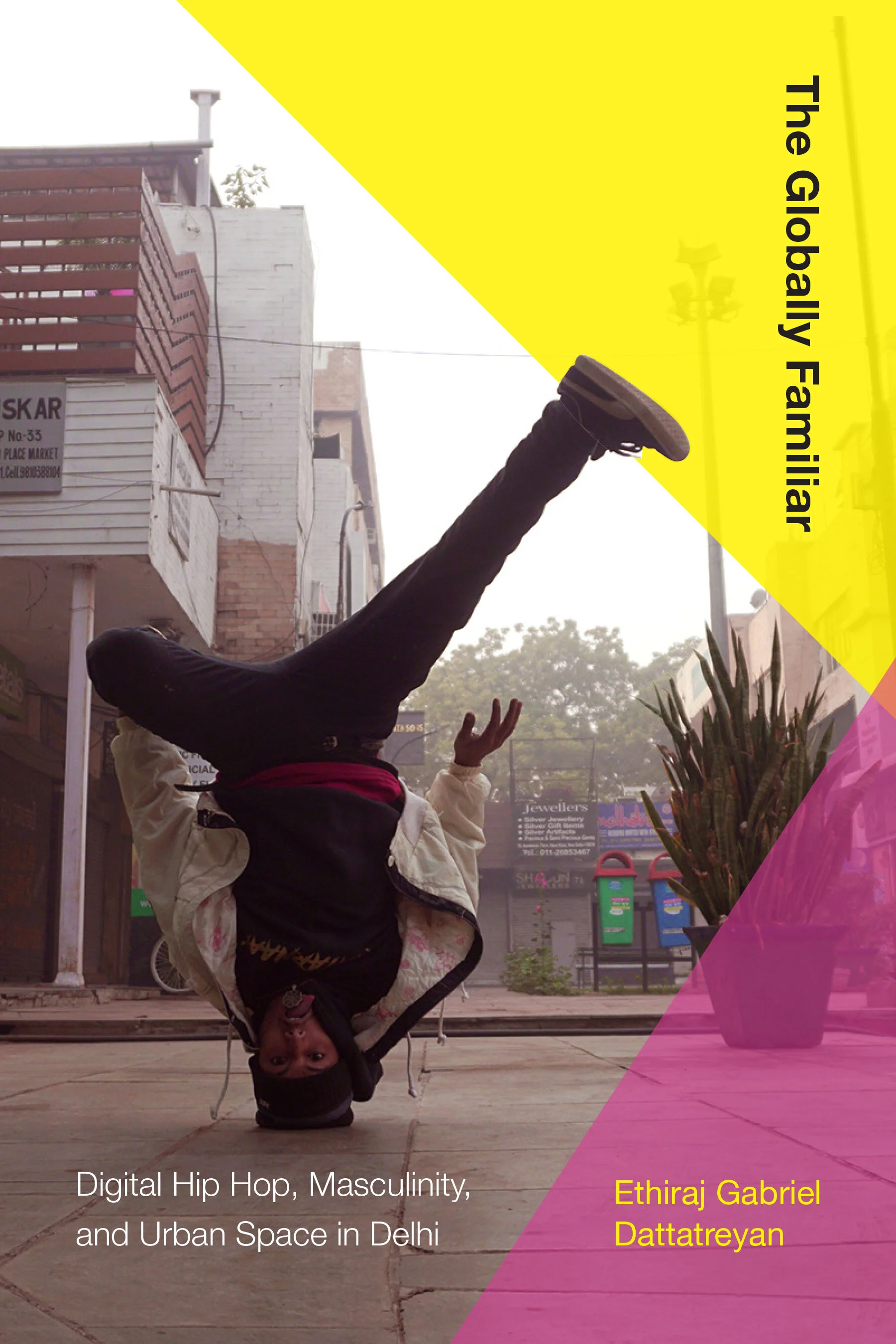“In As aventuras de Ngunga, the bodies of African women form the battleground over which the MPLA’s modernity and the African chiefs’ conservatism is enacted: Ngunga has to renounce his love for the young Uassamba, the fourth wife of the village chief Chipoya.”
Read More“Could the displaced “fruits” of its revolution today tell us something about the past? And what might the condition of absence, understood in temporal terms, mean for revolution itself?”
Read More“As they write, “Passivity is the smothering of suffering and passion is the explosion of suffering. Passivity and passion—the ways to keep living when you’re damned, even by your own people.”(P. 153) There are no tales of ascendence, of aspiration, of striving “to be somebody” here.”
Read More“When posters for Mohamed Pack Your Bags appeared on the walls of the foyers (employer-owned housing for migrant workers) where the play was touring in France, Algerian workers reportedly panicked, thinking far-right activists had plastered their housing quarters with anti-immigrant signage.”
Read MoreRunning through the book, at a level just below the surface, a constant conversation is at play: a conversation between the dispassionate reporting of a journalist, and his social location. Saha is the grandson of migrants from erstwhile East Bengal and East Pakistan whose grandmother did not make it to the NRC because, for Kafkaesque reasons, she has been marked as a “D voter” since 1997 by the Election Commission of India (D for doubtful). In a strife-ridden time and place, however dispassionately she conducts her reportage, the journalist and her creations can be reduced to who she is ethnically, linguistically, religiously.
Read MoreIn the first conversation of the Borderlines series History Sounds, Christopher Silver speaks about the history of the recording industry in North Africa from the colonial period through decolonization.
Coming up: Mejgan Massoumi will tell us about radio and popular culture in modern Afghanistan.
Read More“[T]he general neglect of Melaka in historical scholarship, especially for the modern period cannot be denied. This essay responds to this neglect by attempting to fill a particular void about the social history of Melaka. It centrally locates Melaka within the Indian Ocean world by studying the ties it shared with South Asia in terms of convict transportation. Furthermore, it analyses how these inflows altered the very dynamic of the nineteenth century social landscape of Melaka.”
Read More“And yet, the tension between these two logics is not necessarily a mis- match between two incompatible philosophies of value. For Sofia, it was more like a puzzle that challenged her and her colleagues to arrange their numbers appropriately, calculate them ethically, and organize them harmoniously. These are two different flows of ideas and preoccupations that coexist inseparably. Sofia’s job consists of giving the tension arising from their coexistence the right intensity so that their prices can stand an ethicality test, an assessment of how they will affect the lives of others.”
Read MoreProfessors Deborah Starr and Hanan Hammad tell us about their work on the history of Egyptian cinema, ideology, and communal relations in the twentieth century. They also discuss questions of methodology, how to find and use the new sources available today, and the importance of intellectual exchange and collaboration.
Read MoreThe conversation that we have captured here reflects the nuanced and thought-provoking ideas and scholarship of the participants—Banu Subramaniam, Julie Livingston, Omar Dewachi, and Sunil Amrith—who all study the body and biopolitics. Their approaches range across global histories of medicine and science, anthropology, and feminist studies of science, environmental and transnational histories of migration, and studies of war and humanitarianism, but they share a broad interest in the shifting power of the state and in consequences of capitalism.
Read MoreBORDERLINES ANNOUNCES THE LAUNCH OF A NEW COLLABORATIVE PROJECT WITH THE TECHNOLOGIES OF POWER PROJECT. THE THIRD LECTURE SERIES TITLED ‘‘AFGHANISTAN: IS THE WAR OVER?’ FEATURES THREE TALKS BY SANAA ALIMIA, MARYA HANNUN, ALI OLOMI, & BILAL SARWARY.
Read MoreAnd the silent listener is not necessarily the poet of the collection. It could be anyone. If you ask the characters, they will tell you. One of the inspirations for such a recording style was Svetlana Alexievich. She has reinvented the role of the author and distributed its power among the speakers for the truth to emerge.
Read MoreBORDERLINES ANNOUNCES THE LAUNCH OF A NEW COLLABORATIVE PROJECT WITH THE TECHNOLOGIES OF POWER PROJECT. THE THIRD LECTURE SERIES TITLED ‘‘AFGHANISTAN: IS THE WAR OVER?’ FEATURES THREE TALKS BY SANAA ALIMIA, MARYA HANNUN, ALI OLOMI, & BILAL SARWARY.
Read MoreWhat resonated across both Yael and Shrimoyee’s work was an engagement with fluid bureaucracies and a “permanent emergency” that manifested itself through disparate regimes of files and decrees, rule-bound and illegible systems and jurisdictions of law through which Kashmiri and Palestinian subjects moved. We spoke to them about the polymorphous nature of the relationship between checkpoints and permits, preventive detention and the constitution, encryption and inscription.
Read MoreThe second Technologies of Power series titled ‘ENCLOSURES’ features three talks by Ronak Kapadia, Nada Shabout & Simone Browne.
Read MoreTechnologies of Enclosure have devastated entire regions in South Asia, the Middle East, and Africa to the domestic expansion of explicit white supremacy, and regimes of surveillance which have generated a multidirectional and dialectical enclosures between foreign wars and domestic issues.
Read More“Eventually, the familiar became a way for me to approach what I instinctively felt was the inseparability of affect, infrastructure, mediation, and value and to recognize these different geographic scales were linked through circulating signs.”
Read More“Sur draws us into the terrifying world of the new border but tempers and humanises her clinical description of the physical infrastructure of fence and tower with a range of ethnographic vignettes that tell a story of transborder kinships, conviviality and unforeseen friendships.”
Read MoreFrom imperial projects that devastated entire regions in South Asia, the Middle East, and Africa to the domestic expansion of explicit white supremacy, surveillance, and policing, US technologies of power have generated a multidirectional and dialectical relationship between place, land, and geographies.
Read MoreFrom imperial projects that devastated entire regions in South Asia, the Middle East, and Africa to the domestic expansion of explicit white supremacy, surveillance, and policing, US technologies of power have generated a multidirectional and dialectical relationship between foreign wars and domestic issues.
Read More


















